 Over the past couple of years and more specifically this calendar year, a lot of my energy has gone into assisting organizations and individuals (including me) with strengthening social media practices.
Over the past couple of years and more specifically this calendar year, a lot of my energy has gone into assisting organizations and individuals (including me) with strengthening social media practices.
Hoping to answer the question: "How do you build online community?"
And then, actually doing it post by post, tweet by tweet, share by share.
Most recently, I've joined the social media team at Feed The Children. Exciting new things are happening in the communications department and next week I look forward to telling you all about our newest project launch!
I've also assisted individuals as well as small groups of people with growing their online presence. (As my bio says, I'm known for making folks disciples of twitter . . . strange but true). As an aside, if you want to have a conversation with me about this, feel free to contact me through the email address under About Elizabeth.
All this strategizing about social media has got me thinking about my own writing life in conjunction with it.
So to writers who say they want to go to their bubbles of offices and deactivate their WiFi to meet their deadlines, I beg to differ. I believe I am a better writer because I am a social media practitioner. And it's not just because I'm procrastinating. Here are some thoughts:
1. You really can say a lot in 140 characters.
When I first started tweeting, I was overwhelmed as many new to twitter are that I had to something in less than a sentence or two. How was that even possible (especially from overly verbose me)? But the more I wrote and edited tweets I found myself going through a daily editorial exercise without even thinking about it. There were words in a given sentence I didn't need. There were abbreviations that I could use instead of other words. And I saw that it didn't take a long paragraph to convey emotion, passion or even conviction. 140 characters was enough indeed.
2. Clever humor is so attractive.
When is the last time you read someone's post on Facebook or someone's tag line on Instagram and laughed out loud? Maybe I just have found some really witty accounts to be associated with, but reading other people's funny posts pushes me. It pushes me not only to laugh more (it is good not to take life so seriously), but also to think of ways to craft more appealing sentences myself.
Sure, I could just say, "I'm watching the Miss America pageant tonight on tv. Trying not to be snarky." But it is way more inviting to conversation with others if I say something like, "Irish dancing is always cooler than a tutu. She's looking at all the other contestants and saying top this #missamerica" Simply put, participating in social media stretches my creative muscles and I believe my longer prose thanks me later.
3. Practice, practice, practice.
In the weekly discipline of keeping up a blog, perfectionism goes away. A blog is never meant to be perfect. It just is. So the best thing a writer can do happens: there are words on a page.
When I have conversations with writers who wrote prior to the "post your every thought online" times such as these, one of the most positive reflections I hear from such writers is this: you don't know how lucky you are as blogger to have so much practice! And it is true a blog is great for trying out any new ideas. It's great to see what ideas stick and which ones don't.
And, while the act of blogging and sharing your writing on other social media channels can easily lead to narcissism or not taking the necessary time to churn out rich thoughts that more established publications can provide-- a blog is good because it keeps you writing and conversing with your community of readers. Practice does not make any writer perfect, but it does keep us moving in the right direction.
I Don’t Want to Go!
Jonah 3:1-5, 10
Preached June 16, 2013
Watonga Baptist Indian Mission
 I don’t know if you’ve ever had the experience in your life when you felt like God really wanted you to do something and you absolutely did not want to do what you thought He’d asked you to do.
I don’t know if you’ve ever had the experience in your life when you felt like God really wanted you to do something and you absolutely did not want to do what you thought He’d asked you to do.
I know I have.
Over a year ago, Kevin got a call from a recruiter. They wanted to talk to him about a job. It was with a big organization called Feed The Children.
On the way home from work, the day that the recruiter called Kevin, he phoned me to ask me what I thought.
“Oh that’s really exciting, honey” is what I am sure first came out of my mouth. It sounded like an exciting opportunity to do good with his job that I knew Kevin couldn’t pass up. But then there was a catch—that would be his next sentence.
“You should know,” Kevin said, “Feed The Children’s headquarters is located in Oklahoma City, OK.”
“What??” was my first word in response to that. “Why would we want to move to Oklahoma?”
The thing was is that we had a nice life and jobs for ourselves in the Washington DC area. Kevin actually liked his current job. I was the pastor of an American Baptist church like this one that I adored. We liked where we lived. Why would we want to move? After all, most of our friends and family lived on the East Coast. We counted the hours—it would be a 22-hour drive from Washington DC to OKC: at least a two day trip to get back home if we wanted to.
Soon, I was not in favor. Not in favor at all. Kevin can tell you, that there were some less than appropriate preacher like words that came out of my mouth in response.
But the more Kevin talked to the recruiter and then the organization’s leaders, it became clear that it was God’s calling for us not to stay but to go.
We were to move at least part of our lives to Oklahoma for a season. We were to join in God’s mission to feed children in need around the world. Even if it means leaving the familiar for something unknown to both of us . . .
I still wasn’t happy about it. But, during the time when we were discerning what to do next, I heard a sermon preached on the scripture passage before us today. I knew that I did not want to be called Jonah.
While Jonah is often referred to as “Jonah and the whale” as a story meant for kids, I propose today that it is not a story for only for the kids, but an adult tale meant to grow our understanding of God and God’s plans for us in the salvation stories of our lives. It’s a story that invites each of us to take a second look at our feelings about the bounds of God’s love for all people and all parts of the world—even the parts that are unfamiliar to us.
And this is the summary of what God asked Jonah to do: go preach God’s word to the Nineveties.
It is good to first consider the who’s and what’s of Nineveh and why God’s message to go preach there was completely out of the question for Jonah.
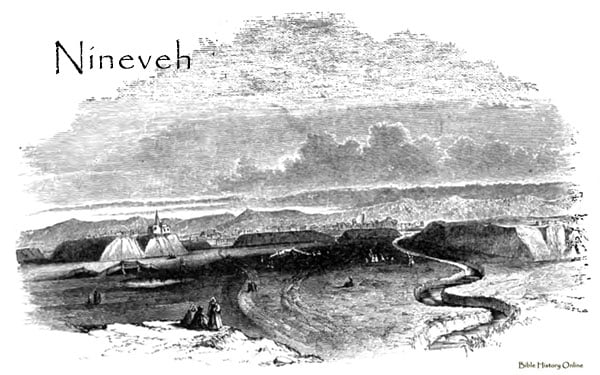 Nineveh was the capital of Assyria. It was a city with a strong military base, the seat of all things powerful in the ancient world. If you were a small nation, you feared any contact with Assyria.
Nineveh was the capital of Assyria. It was a city with a strong military base, the seat of all things powerful in the ancient world. If you were a small nation, you feared any contact with Assyria.
Furthermore, Assyria was more than an enemy. This nation was THE enemy to end all enemies to the nation of Israel that destroyed the northern kingdom of Israel (10 of the 12 tribes) and held the two remaining tribes of Israel, Judah and Benjamin in fear for over 100 years!
Years and years of history included brutal treatment, occupation, and taking from Israel their human rights and their land.
But then, a new message came on the scene illuminating a compassionate God. A God who loved even the Assyrians—the bad guys in the story. God said, “Yes, there was a time for judgment but there was also a time for love of all the nations, included the much despised.”
We find very few details of Jonah’s life or his previous prophetic activity. He just appears out of nowhere.
In Jonah chapter 1, we get down to the main event quickly: the Lord saying to Jonah in verse two: “Get up and go to that great city of Nineveh! Announce my judgment against it because I have seen how wicked its people are!”
So not only is Jonah going to be asked to go to a faraway place, but to the dreaded enemy!
And, Jonah is told when he gets there to give a message of repentance. He doesn’t even get to say something tame. . .
It would be like a solider crossing enemy lines not with the white flag of surrender, but saying to those on the other side: “God wants you to repent for you’ve done really bad things.”
(Not exactly the words that would lead to kind hospitality from Assyria, wouldn’t you agree?)
So, of course with all of this true, Jonah was afraid.
Of course, Jonah doubted if this prophetic word was really the Lord who was speaking to him.
Of course, Jonah thought it was time to change careers, take a vacation and find his way to the other side of the known world.
Because if his previous vocation required speaking for God– a God who would now send him to Nineveh, then it was time to get a new religion or no religion at all for that matter.
We sympathize rightfully so with Jonah at this juncture, don’t we?
And so Jonah ran. We’d run away too, wouldn’t we if God sent us to a place in the world that we hated as much as Nineveh with news bad enough to get us killed?
Jonah ran away as far as he could, 750 miles away in fact. He jumped the first boat for the other side of the world. And this was until a huge storm descended upon the waters. His shipmates through lots to see who’s fault it was—a part of ancient custom. And the lots landed on Jonah. Soon Jonah was overboard and found himself swallowed up by a fish.
There was once a Sunday School teacher who taught a lesson about the story of Jonah. When she had finished, she asked her class, “Okay everybody, what did we learn today from the story of Jonah and the big fish?”
Some of the kids talked about Jonah having to preach to the bad people. Some of the kids talked about Jonah really, really not wanting to go.
And a bright little eight-year old girl thought for a moment and said, “Always travel by air.”
Smart girl, huh? Makes me want to fly next time too, right?
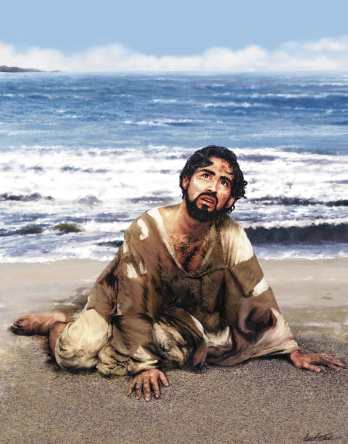 So what happens if a call of God emerges in our life that no matter what we do to try to run from it, avoid it or pretend we never heart it– what happens if it doesn’t go away?
So what happens if a call of God emerges in our life that no matter what we do to try to run from it, avoid it or pretend we never heart it– what happens if it doesn’t go away?
What happens if we are called to be with “those” people and God just won’t let us forget?
What happens if we find ourselves in the shoes of Jonah?
Today is Father’s Day—the day that our country has set aside since the early 1900s to recognize the father’s in our midst just as we do with the mothers only a few weeks ago.
Though Hallmark and television commercials want to make this day into a sappy holiday with all sorts of grandeur expressions of love and appreciation—for many of us, some of the men in our lives aren’t all that. Sure, we respect them as elders, we respect them as those who gave us life or gave our children life, but they don’t seem to be the kind of people in whom we can overtly appreciate on a day like today.
But what if God calls us to those people?
Roberta Bondi, a Christian teacher at a university in Atlanta, Georgia, writes about one such experience in her life in her book, Memories of God.
Having grown up with a father she didn’t like very much, a father in whom she’d isolated herself from especially as her parents divorced and she lived in different states from her father in her high school years. She was always mad at her dad for leaving her mom, her and her sibling behind. Then she writes about a change that happened in her heart over time as she began to study the scriptures and consider what God most wanted from her:
Eleven years ago, my father’s sister, whom I had not seen since childhood, moved to my hometown and we began to spend wonderful time together. . . . . My aunt began suggesting that I go and visit my father, whom I had not seen for a number of years. I knew that he was remarried, that he was ill with emphysema, and that he was retired [He possibly could die soon]. I was terrified by the idea of a visit. I took a trip to Connecticut [where he father was living at the time]. It was not an easy trip, since I was still so afraid of him. . . . . And now, amazingly, being able to see him for the first time through adult eyes, I began to see not my childhood image of my powerful, mythical father, but rather my actual flesh and blood, real human father. In that trip, I began to learn that my father had changed over the years. He still had a good mind but from somewhere against all expectations he himself had learned a lot of gentleness. Just as surprising, considering his previous history, he had become a Christian man to the core.
Roberta goes on to write: “It still seems to me to be an astonishing gift of God’s grace that in the last years of his life I was able to stand with him as his friend who was his adult child.”
It was Roberta’s Jonah moment of decision come to live with wonderful effects.
Maybe for you in your life—your call of “go” is not to another job or city, like it was for Kevin and I. Maybe it is not to praying about and working toward a renewed relationship with an family member or friend, like Roberta Bondi.
But, I do know this: that the Jonah tale was not just a one-time deal. It’s not just a story or a metaphor as some would like to call it that doesn’t relate to us anymore.
Sure, we might not actually get swallowed up in the belly of a fish like Jonah did.
But, what I know of our God is that we are continually asked to do what is UNCOMFORTABLE to us. And, if we say no, there are consequences to our actions, we don’t get to have the fullness of blessings that can be ours in this life when we say no to God.
I believe God longs to show us—not punish us—the beauty of what can come from the most broken situations of our lives.
If we look back at our scripture passage—Jonah chapter 3, verse 5, we read that God used Jonah in the most amazing way. For, “the Ninevites believed God” as Jonah brought the message. Jonah was not harmed (as he thought he might) through being in this unfavorable situation and place. Rather, Jonah received the blessing of being God’s instrument of peace and love to an entirely new community of believers.
I am sure that you like me have your fill in the blank when it comes to who “those” people are in your life.
You have someone at work, someone in your neighborhood, or even someone in this community that really just pushes all of your buttons and you feel like if this person or persons simply opens their mouth, you’d explode.
Whoever is on your list of “those people” I invite you to reconsider the journey of Jonah. To come and get to know this God you have chosen to follow all over again and realize that yes, those people are included in God’s family too. And yes, you and I have a lot to learn from even them . . .
It’s a hard edge to sit with this morning. But, today God calls you. God calls you to all people. Let us get to loving in word and deed to those, especially those in whom we may not really want to move towards. And I know this, as we do, God will bless our steps.
Amen
 Today marks the one year anniversary of our family's involvement with the non-profit giant, Feed The Children. More than just a job for Kevin, it has been a calling to a way of life.
Today marks the one year anniversary of our family's involvement with the non-profit giant, Feed The Children. More than just a job for Kevin, it has been a calling to a way of life.
I've thought a lot about the fact that I would write this blog today. That today I would mark this passing of time as significant in our lives. That today I would say something nice about my husband. That today I would highlight some of the great work that this organization does on the ground to feed hungry children every day.
But, somehow none of these lead ins seems appropriate.
How to do you talk about the meteor hitting the foundation of everything we know kind of year?
How do you talk about being transported to a world you'd never thought you'd be in?
How do you talk about living a life suddenly that few of your friends understand?
How do you talk about the fact that faces of children from all over the world filled your Christmas Card photos?
Or the fact that when your mother calls her first question is, "What state (or country) are you in today?"
It has been a year!
It's been a year that has landed us with necessary dwellings two different cities.
It's been a year that has taken us to five different countries in the developing world for field visits.
It's been a year that led me to leave the traditional career I had for something on the edge of undefined.
It's been a year that has led us to some of the most exciting possibilities for our future than we could have ever imagined, truly.
It's been a year of much hurt, unsettling findings but then hope in the rubble too.
It's been a year that has re-made my husband's mission for his life with clearer vision than he's ever known.
It's been a year for me to seek out new mentors, as the role of being "Kevin's wife" in an organization like this has felt often times like entering a foreign land for my independent sentimentality self.
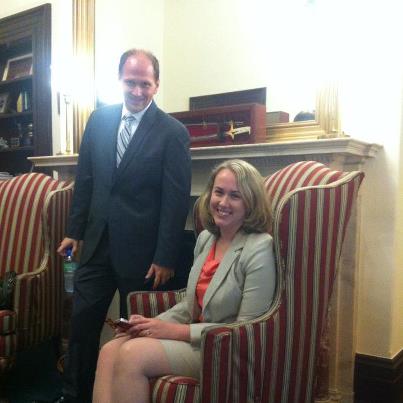 It's been a year that has called both of us to hold tight to the foundations of our own sense of vocational callings and marriage covenant-- "Yes, wherever you go, I will go."
It's been a year that has called both of us to hold tight to the foundations of our own sense of vocational callings and marriage covenant-- "Yes, wherever you go, I will go."
It's been a year that has united our faces, cheek to cheek with some of the most precious children of this world-- who long most of all for someone just to see them. And we have.
It has been a year.
It's hard not to speak of how proud I am of my husband. Or of how proud I am of us-- Elizabeth and Kevin together-- two who keep fighting for the best for "us" in the midst of the best for "them." Or, how proud I am of myself for not taking cues from what certain folks want me to be, instead, listening to the voice I already have.
Oh, if the walls could talk you'd know that it has been quite a year, a really big year in the life of team Hagan on the Feed The Children train. But, it's a train we don't sit stopping in the direction of progress anytime soon. Together.
At the end of the day, no matter where in the world you are, there's one thing that always makes kids excited: the candy. Even the big kids like my husband . . .
This week I've been reading Anne Lamott's latest: Help, Thanks, Wow. It's a book about three essential prayers that Lamott says are necessary for all of us to go back to over and over again. Saying to God, "Help!" "Thanks!" and "Wow!"
The first two sections were typical Anne Lamott good-- honest, raw, and real. So real that her words make you want to figure out how to write like this in your own voice.
But the third section has captured my attention in way that I think we don't talk about enough as people of faith: Wow!
Lamott writes: "The third great prayer, Wow, is often offered with a gasp, a sharp intake of breath, when we can't think of another way to capture the sight of shocking beauty or destruction, of a sudden unbidden insight or an unexpected flash of grace."
And when you put it like this, I don't think we don't know how to say wow. Sure, it's a simple enough word, but I can't think of the last time I heard it in a conversation.
Maybe it is because we don't know how to stop.
Maybe it is because speechlessness as a prayer doesn't seem to equate to "real" prayer in our minds.
Maybe it is because we are people who like to rush on through to the next project, the next meal, the next adventure that we keep our eyes shut to "Wow" most of the time.
This week as I've been traveling with the team from Feed The Children in Guatemala, there have been a lot of wow moments.
The children getting a book for the first time.
The smiles of the mothers.
The lake.
The sunshine.
The birds (and flying beatles) waking us up in the morning at sunrise.
As we've been thrust out of our normal day-to-day routines saturated in the beauty of a country with lush hills and valleys, colorful clothes and flavorful foods, it is much easier to say wow. Especially as we've served meals to children with the sparkle of gratitude in their eyes for a simple plate full of tamales, rice and beans, you just can't help but smile in wow!
But I don't think you have to go out of the country or into a new experience to have a "wow" moment or to offer up a "wow" prayer. Such opportunities are all around us, I believe.
Our children learning to say please.
Waking up before our alarm goes off.
An unexpected invitation to dinner.
A card of thanksgiving.
What about you? what is making you say "Wow" where you are today? Here's some photos of mine.
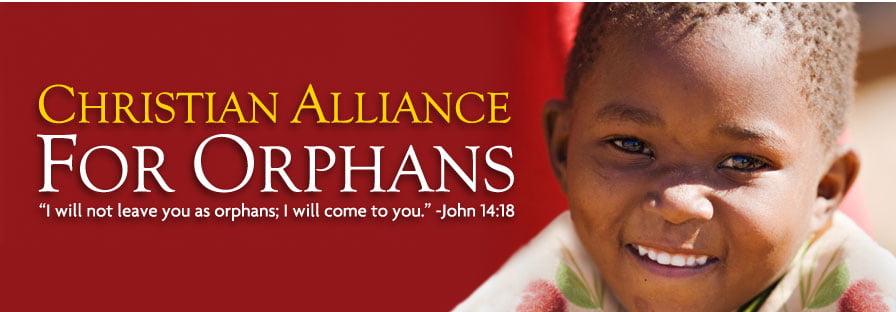 The juxtaposition of my life these past couple days has been interesting—attending a Christian conference discussing orphan ministries and global poverty in a well-to-do suburb of Nashville, TN to now being among kids in poverty in rural villages in Guatemala assisting with feeding programs with the staff of Feed The Children.
The juxtaposition of my life these past couple days has been interesting—attending a Christian conference discussing orphan ministries and global poverty in a well-to-do suburb of Nashville, TN to now being among kids in poverty in rural villages in Guatemala assisting with feeding programs with the staff of Feed The Children.
There’s still much to process. But for now, this is what is coming together in my mind:
One of the best experiences of the Christian Alliance for Orphans Summit for me was the breakout session I attended called, “Straight Talk from Adult Adoptees.”
In the session, a packed room, three adults and one older teen led a panel discussion about growing into maturity from their experiences as adopted children.
Feelings such as “I hated my birth parents or birth country for abandoning me” to “I always knew my birth parents loved me, until they got a divorce . . . “ to “I never really understood why my birth parents would give me up” were shared openly.
But, then the discussion got complicated. We quickly learned there would be no “one sized fits all” answers or even the luxury that “being adopted” would be the defining experience of the panelists’ lives.
One of the adult adoptees shared how her trust issues were complicated by the fact that she learned her adoptive father only agreed to her adoption to save his marriage—which indeed didn’t happen as they divorced six months after her placement with family. She talked about her mother’s complicated re-marriage processes and then shared about the recent death of her adopted mom. All experiences of great loss . . .
But before our minds in the audience could single out her experience as “oh so bad” this adult adoptee stopped us saying directly to us: “Everybody in their life has pain. I have friends who have been through great losses too—deep woundedness that follows them as mine does me. . . . It just so happens that mine is more understandable than some with the label of adoption.”
It was a light bulb moment for me.
She spoke the truth: everybody has deep pain. Everybody is wounded. It's not an adoption issue. It's a human issue.
Being adopted and coming to turns with the abandonment part of it is just one of the ways that deep pain of this broken world can find a person early in life.
Pain is pain. Grief is grief. Loss is loss. And it is something we all understand, the more honest we become with our own story. Experiencing pain is a part of what it means to be human. Experiencing pain is part of what connects us to other human beings.
 Fast forward to this morning as I spent the day with the Feed The Children staff in Guatemala and several other guests at one of our feeding centers in rural Guatemala. As we visited with the kids, played games like hitting the piñata in search for candy, read stories to them, and then of course served a meal (rice with some chicken mixed in, cucumbers and radish salad, and tortillas), I couldn’t help but think about these kids’ pain.
Fast forward to this morning as I spent the day with the Feed The Children staff in Guatemala and several other guests at one of our feeding centers in rural Guatemala. As we visited with the kids, played games like hitting the piñata in search for candy, read stories to them, and then of course served a meal (rice with some chicken mixed in, cucumbers and radish salad, and tortillas), I couldn’t help but think about these kids’ pain.
I thought about the pain these kids may not have words to speak of right now, but pain that will follow them because of the kind of livelihood they were born into.
For, these were kids who came to the center in tattered clothing, dirty faces and shoes that didn’t seem to fit right.
These were kids who starred often at us “white people” with the cameras taking pictures of the festivities with the look of “Wow, what a nice life you have!”
These were kids who have walked to walk miles to school, many of whom depend on the donated shoes from TOMS (one of Feed The Children’s partners) in order to get there safely.
These were kids with great needs, more than I can mention in this post (though of course thanks to the generosity of FTC contributors and sponsors many of these needs are getting met).
They know pain.
Though I did not grow up in a home that struggled to provide me with basic life necessities, I can identify with them. I can identify with their loss, even if it may not be to the degree that their loss is to them.
For at the end of the day, we all just want to be loved. We all just want to know that someone cares about us in particular. We all want not to worry about where our next meal will come from or that we’ll have clean clothes to put on the next day. We want to feel secure in a family system, orphaned or not.
And I believe that when we all get to the point in our lives when we see our stories as broken, as in need, and most of all full of pain of one kind or another—we are given a great gift.
We're given the ability to more honestly look into the eyes of our brothers and sisters in humanity, knowing we’re from the same family. All of us. Because of this, we need each other more than we ever thought.
Who is the church called to care for?
Who is the church asked to speak for?
Who is the church told to lift up?
For those of us who believe in the mission of the church, each of us has our favorite answers to these questions.
Many say the church is called in mission to the poor or the widows, or the sick.
Many say the church is called to speak for those without a voice.
Many church is called to pray for those who are often left out or ignored in remote places of our local communities and around the world.
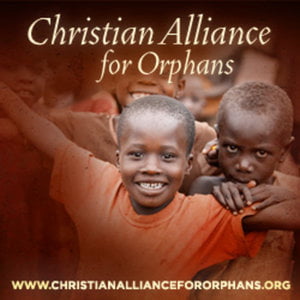 But, I'm learning this week that there are a growing number of Christians and Christian churches who answer these questions by specifically by saying: "God calls us to care for, to speak up, and to lift up the orphans."
But, I'm learning this week that there are a growing number of Christians and Christian churches who answer these questions by specifically by saying: "God calls us to care for, to speak up, and to lift up the orphans."
I'm attending the Christian Alliance of Orphans Summit Conference in Nashville, TN as a representative for Feed The Children exploring what relationship with this Christian Alliance might look like in the future. And here with folks who deeply care about the church's mission going forth in care of children who have been abandoned, malnourished, or without the basic life essentials to achieve their greatest potential, I've had some shocking revelations.
It has been shocking to see how many folks are here in the middle of the week (organizers say it's the largest turn out ever in its history). Starting only with 45 folks sitting around shared tables only 9 years ago and now more than 2,000 . . .
It has been shocking to learn about how many churches around the country host "Orphan Sundays" each year-- in an effort to spread the message about the plight of orphans around the globe. Big mega churches, medium-sized churches and tiny ones alike . . .
It has been shocking to see such passionate conversation between all sorts of church folk around the exhibit hall asking such questions as "What more can we do to raise awareness about these children who need us to care for them?" Folks from all corners of the spectrum of theological camps, conservative, liberal, you name it. ..
And it is good to be shocked. It is good to see so many folks in James 1:27 t-shirts (the adoption theme verse). It is good to see so many interracial families and families full of kids with special needs and families putting action to their faith instead of words only.
It is good to be learning in community.
It is good to be so proud of the organization I know best, Feed The Children-- a group that has been working since 1979 around the globe to bring attention to children in poverty including orphans.
If you are interested in joining the movement: click here to learn more.
But I can't seem to get these boys we met in Africa out of my mind because as many of you know, some of the greatest gems of experiences take time to sink in . . .
One of my favorite experiences of the Kenya trip Kevin and I took last year was the time spent with the young men of the Hardy House-- a group of 20s and 30s something young men with special needs. They'd lived in the FTC orphanage in Nairobi since childhood but who had aged out of the system with nowhere else to go. (Thus, the "Hardy House" was created for them to live in for the rest of their life).
Over the course of two days, we shared a dinner with them. We slept in their guest room. We woke up watching the cartoon "Fat Albert" on their tv and laughing with them.
When it came time for us to leave, the Hardy Boys became serious: "Could you take us back with you to America? . . . Could you find us work there? We just want to do something . . . We want to feel useful."
While the "take us back to America with you" part was expected (for those of you who've traveled overseas in the developing world know that this is a common request made by folks desperate for a way out of poverty), the "we just want to do something . . . we want to be useful" part surprised me. Because before us sat young men who were blind, deaf, and full of mental and physical challenges of all kinds.
I wondered in the moment: "How did they know that they weren't useful? Weren't they satisfied to be in a safe and loving place with folks watching out for them for the rest of their lives?"
The thing is in Kenya, like other developing countries, with few resources to go around for even the able-bodied citizens, the citizens with physical or mental challenges of any kind are naturally tossed to the side. They are sent away to the alleys. They are hidden in the back rooms of homes. They aren't acknowledged as full family members. They are not sent to school with an individual education plan, as children in America with the same challenges are. Deep sigh.
And, therefore if young men like the Hardy boys make it into adulthood in a place like Kenya (thanks to the quality of the Feed The Children staff and programs), there's no social services to offer them a non-discriminatory hiring or then accommodations on the job. They simply don't get to work.
But they said to us: "We just want to work . . . We want to be useful." They're still hoping for a better life.
And I don't think my Kenyan friends are alone in their longings.
All of us hold a deep desire to be useful-- to do something that matters to someone, to contribute so that when we die we've made our mark.
As much as we told the Hardy boys that we loved them and that their concern for us was useful, it didn't seem to satisfy them.
I believe we can't muster up usefulness for another. A person has to feel it. A person has to live it. Whether it comes from a job completed with our hands or from a relationship where we know our presence matters to another person-- usefulness is something we crave. We crave it so much that many of us will often go to the extremes to create it:
We'll butt our way into a position on the steering committees at work or the PTA at our kid's school or on a neighborhood board with meetings we hate-- just to say we're doing something of value in our free time.
We'll not say no when a friend asks a favor-- just to have proof of our importance to him or her.
We'll fill up our weekends with family and social events of all kinds-- just to feel like our presence matters to those we claim as our own.
It's not that "usefulness" is a wrong desire or that our Creator doesn't long for us to use our gifts in meaningful ways, but sometimes those of us with every opportunity in the world take our work to the extreme. We don't stop. We never pause to consider our motivation for going and doing and doing some more. We forget that there are those in this world who want to be seen and heard and validated for doing something AND we've got the gifts to help them.
As I keep the Hardy boys and their joy (I mean aren't their smiles in the picture above precious?), their hope, and their desire to find useful work in dear places of my heart, I hope that a way might be made through Feed The Children in the future for them to "do" more. I hope that my resources and the resources of others like you might be funneled toward their needs.
But, I also hope that God will stop me when I get busy doing "useful" projects which were never my business to be a part of in the first place. I hope that will have more loving eyes to see those who need to feel useful to me and I to them.
I hope that you and I can continue this conversation about usefulness because I'd really love to hear what you have to say too.
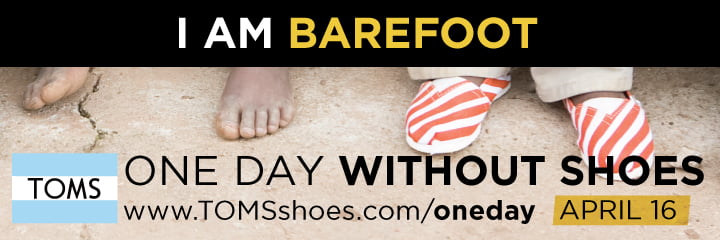
Today, I am participating with my friends at Feed The Children in their pledge to go one day without shoes. It's a cold day in Oklahoma and I have missed wearing shoes for sure, especially when an errand I needed to do took me on the streets of downtown OKC.
It's an emphasis begun by one of Feed The Children's partners, TOMS shoes to raise awareness about childhood poverty around the world and what it would be like to be even without the most basic life necessity: shoes. Feed The Children is participating, staff-wide for the second year now.
We were invited to write a name of a child on our feet-- as a way to walk in solidarity with them for the day. I chose Dorcas, a little girl from the area of Tumaini, Kenya.
Dorcas is an 10-year-old girl who lives in a community without running water. Her home does have electricity for which she is thankful. She contributes to her home by carrying water/ wood, cleaning and caring for her younger siblings. Her favorite color is red and her favorite food is rice. Dorcas hopes to become a teacher when she grows up.
Consider sponsoring Dorcas or a child like her (as Kevin and I have done) through Feed The Children's child sponsorship program. You'll ensure she never goes a day without shoes again.
Or, consider buying a pair of TOMS shoes, knowing that as you do a pair will be donated because of YOU to a child in need (and many of these kids are participants in Feed The Children's programs!)
I can't help but be reminded on this day as I participate with countless others in this emphasis of Isaiah 52:7: "How beautiful on the mountains are the feet of those who bring good news, who proclaim peace, who bring good tidings, who proclaim salvation, who say to Zion, "Your God reigns!"
Bringing shoes to kids in need is good news indeed! Thanks TOMS for your leadership in this great effort.


Today, I watched as 800 people stood in line with grocery sacks, trash bags and wheeled carts waiting to get food.
Most if not all were minorities.
Many were elderly, walking with canes or walkers.
Many were young mothers with babies in strollers or in car seats.
Many looked cold after standing in line for three or more hours simply to make it to the front of the line.
Many spoke of their long journey home, taking two or more buses to get back to their doorstep.
Most looked weary with the burdens of a hard life-- a life that had a lot to do with self-reliance, determination and perseverance to succeed even under less than desirable circumstances.
These were some of my hungry neighbors in the northeast neighborhood of Washington, DC. They gathered in mass nearby the Central Union Mission because they heard Feed The Children came to town with "the big truck." Feed The Children came with boxes of essential can goods, personal care products such as soap and toothpaste, and loaves of bread, oatmeal, and even some chocolate for the way home from its partners including Pepsi, Frito Lay and Wal-Mart.
As I gathered with my neighbors and stood in the line of folks giving out boxes to families in need, I couldn't help be overwhelmed by how deeply embedded hunger needs are, only a few miles from our nation's capital.
Can you imagine what a line of 800 people looks like? (As soon as we thought we'd made headway in passing boxes out, the line seemed to get longer and longer). Can you imagine what it is like to be hungry enough to wait in the cold for a box of food which might only last you a week? Can you imagine the humility that comes from asking for help to simply feed your own children?
As I helped elderly women and young mothers put their canned goods and Corn Flakes into their suitcases or duffel bags, wishing them well on their journey to get all their heavy weight home, I could help but think about what Jesus would say about all of this.
How in a nation of plenty do we allow some of our neighbors to live with such little when many of us take so much?
How do the poor, in a town where media coverage runs on just about anything, become invisible to us?
How do we call ourselves good neighbors, as residents and frequent visitors to the District when some of our neighbors simply do not have enough food to feed our families?
Of course, these are big questions to ask and big questions without simple answers. And, the folks at Feed The Children know that food is only the beginning-- you feed hungry people so that doors of greater relationship can be opened for lasting change. Feed The Children just is a small drop in the larger assistance movement in communities. Feed The Children's food drop's like today mean little if they aren't connected to greater, long-term investment by partner organizations. And Feed The Children's network of building lasting change with in communities like DC is certainly growing by the day. Today was more than about just food-- Feed The Children made sure of this.
As I reflect tonight on my experience today at this event, I am sobered most of all. I know I need to think of my neighbors-- all of them-- in new ways. I need to remember as much as I have, there are those who struggle in my own neighborhood to buy vegetables and shampoo.
Maybe for all of us on this Holy Week as we stand around in the crowds, watching and waiting for and with Jesus-- we can all do our part by remembering the poor among us. We can thank God for the blessings in our life, both great and small. Yet, we can remember that no matter how wide we think our vision is in our community, there's always hungry folks among us wanting to be seen and feed too.
Sometimes of late, I look around at my life and don't recognize myself.
Situations that used to make me anxious like ever-changing plans for where I'll be in a given week-- are par for the course.
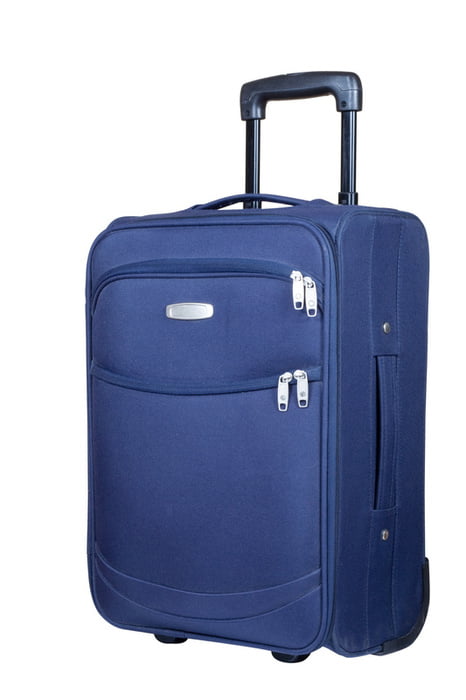 Weeks of the year like this one, that used to be full of the busy cries around the church office of "Holy Week is coming, holy week is coming" are just another week in the year, actually quieter than normal.
Weeks of the year like this one, that used to be full of the busy cries around the church office of "Holy Week is coming, holy week is coming" are just another week in the year, actually quieter than normal.
Being able to answer someone when they ask what's going on next month with a definitive answer is simply a thing of the past.
Kevin and I now spend time between Oklahoma City, OK and the DC metro area and every other place in between as we balance this lifestyle of being where we need to be at the time. Kevin works in both places. I have things to do in both places and other places too. Defining where exactly is our "home" becomes murkier all the time. Since January, it is rare that I haven't been on an airplane at least once a week. We have been blessed to have the resources to do what is needed (and for this, I'm grateful everyday), but it's been a big change. And, I've looked for resources from any place I can to manage it all. And this is one I've thought a lot about lately:
One summer while I was in college, I worked for a youth camp organization-- an international and domestic traveling team for two months. Before the summer began, we were told to pack one suitcase that would contain everything we'd need for all sorts of climates and living conditions. I showed up on day one with the biggest bag of them all-- something about having my own stuff made me feel more secure. But, instead, I just felt awkward.
Soon I would be challenged at every possible level. I slept in a new bed every couple of days. After the first week of camp, we moved on to a new location. I knew this was what I should be doing for the summer . . . but there were so many moments when I wondered what I'd gotten into!
But, as the days went on, I learned the best thing I could do was travel lighter each week. Maybe I didn't need to get so attached people we met at the work sites? Maybe I could exchange my big mama bag for something smaller at a thrift store? Maybe as everything changed from week to week-- the scenery, the traveling companions beside me and even my moods-- I was being given tools to teach me? Simplicity of purpose became the gift which led to contentment.
And again, here in 2013, with Feed The Children so much a part of what drives the heart of our schedule, I'm having similar stirrings.
Can I live with what is right in front of me?
Can I be content anywhere? Can I find the good in situations or places that are not always ideal?
But, again there are challenges (or maybe just growing edges).
When your life is spread across several places, you often don't have your first choice of what to wear on a given day. When I get dressed in the morning I often get to pick out something from what is in a suitcase, even if it contains the same choices from what I picked last week.
When your life is spread across several places, you don't always get your life in your best case scenario. For example, I love sit-down dinners at home. But to expect a daily routine of always eating with Kevin on Mondays at 6 pm is out of the question. We must connect to each other in other ways.
When your life is spread across several places, you don't get the luxury of getting peace from your circumstances. If I only found peace from running in a particular park or reading in a particular chair or drinking tea from a particular mug, then simply peace wouldn't exist. I must find peace from the presence of the Holy, whom I know is with me wherever I go.
When your life is spread across several places, you don't "work" like normal people do. If I got my esteem from the praise of a boss or a work environment, I'd just be in complete misery right now. But, I can't let other's opinions of me be the words I listen to the most.
In these Lenten weeks, I'm growing to be ok with whatever each day holds, even if it doesn't look exactly like it did the day before. I'm learning to live with less stuff. I'm learning God's presence can be found on airplanes, in guest beds of friends homes', or back in my favorite writing chair in VA. And, if my heart settles a little, no matter what the circumstances, life can be good. Sometimes even very good indeed.
Yesterday, the Associated Baptist Press published a commentary I wrote called, "I Left the Church. But Don't Hate Me." You can read it here.
In this piece, I described that one of the reasons I left my pastorate stemmed from a new professional opportunity given to my husband at Feed The Children. It's something I've blogged about a lot in the past. You can read one such post here.
So, you might wonder how? How do you merge your vocational identity with that of your business oriented husband? How do you support him and this ministry when you aren't employed by this organization? How do you make it work?
Well, the answers to these questions are an ongoing conversation in our household. We aren't quite sure.
Never do I want to be unhelpful or in the way of Kevin's work. But never do I want to shrink down from the opportunity this position has given our family to be a voice of the voiceless, to be a hospitable presence to those in whom have been given to us to care for. Kevin and I have different leadership styles, but styles in which I think push us both to think about situations in ways we'd never would. And, at the end of the day, I know we're each other's biggest fans. I want to love Feed The Children because Kevin loves it and want to do whatever I can to further it mission under his leadership tenure.
So in the meantime of trial and error of what works and what doesn't-- this is what the calling looks like for now.
In the summer and the fall, I traveled both to Africa and the Philippines to learn about and encourage the field work overseas. I wanted to see the field for myself, bringing stories back so that I could better tell the Feed The Children story to all of you who might just be moved to lend a helping hand as well. I want to go on other such trips in the future.
Several weeks ago, I planned and led a Valentine's Party for the entire staff which including a letter writing activity for the staff-- sending love notes to all of the orphans in Feed The Children's care around the world. I made heart-shaped cookies on a stick for the 260+ Oklahoma based employees. I created this event (which now folks I think are expecting every year) to encourage this hard-working staff, letting them know how much they are appreciated especially by us.
And just last week, I made a point to spend as much time as I could with the country directors in to the Oklahoma City office who traveled to Middle America for a week of training. I wanted to honor them as they've honored us during our visits to their countries.
I wish there were some roadmap or even guidebook for this calling. Because I'm often walking in territory new and uncharted (doing and being place I'd never thought I'd be), but in the meantime I'm thankful for the grace to learn a little more about myself in the process every day. And to know that Kevin and I are in this journey together.
